
Saint-Louis, Senegal: The Jewel of West Africa
Saint-Louis, located on the northwest coast of Senegal, is a city of rich history and vibrant culture. Known for its colonial architecture and scenic beauty, Saint-Louis is a UNESCO World Heritage Site that offers a unique blend of African and French influences. The city was once the capital of French West Africa and this legacy lives on in its charming streets, pastel-colored houses, and grand squares. The island of Saint-Louis is connected to the mainland by the iconic Faidherbe Bridge, an engineering marvel designed by Gustave Eiffel. Walking through the narrow, cobblestone streets, visitors can explore local markets, art galleries, and enjoy the lively music scene. The city's unique geography, bordered by the Senegal River and the Atlantic Ocean, makes it a perfect destination for water activities like boating and fishing. Saint-Louis is also famous for its cultural festivals. The Saint-Louis Jazz Festival, held annually, attracts musicians and tourists from all over the world. The city's vibrant nightlife and culinary scene, featuring delicious Senegalese dishes, add to its allure. Whether you're interested in history, culture, or nature, Saint-Louis offers a rich and immersive experience for every visitor.
Local tips in Saint-Louis
- Visit the Saint-Louis Jazz Festival in May for an unforgettable musical experience.
- Explore the city on foot to fully appreciate the colonial architecture and vibrant street life.
- Take a boat trip on the Senegal River for a different perspective of the city and its surroundings.
- Don't miss the local markets where you can buy handcrafted souvenirs and taste traditional Senegalese food.
- Visit the Langue de Barbarie National Park for bird watching and to experience the natural beauty of the region.
Saint-Louis, Senegal: The Jewel of West Africa
Saint-Louis, located on the northwest coast of Senegal, is a city of rich history and vibrant culture. Known for its colonial architecture and scenic beauty, Saint-Louis is a UNESCO World Heritage Site that offers a unique blend of African and French influences. The city was once the capital of French West Africa and this legacy lives on in its charming streets, pastel-colored houses, and grand squares. The island of Saint-Louis is connected to the mainland by the iconic Faidherbe Bridge, an engineering marvel designed by Gustave Eiffel. Walking through the narrow, cobblestone streets, visitors can explore local markets, art galleries, and enjoy the lively music scene. The city's unique geography, bordered by the Senegal River and the Atlantic Ocean, makes it a perfect destination for water activities like boating and fishing. Saint-Louis is also famous for its cultural festivals. The Saint-Louis Jazz Festival, held annually, attracts musicians and tourists from all over the world. The city's vibrant nightlife and culinary scene, featuring delicious Senegalese dishes, add to its allure. Whether you're interested in history, culture, or nature, Saint-Louis offers a rich and immersive experience for every visitor.
When is the best time to go to Saint-Louis?
Iconic landmarks you can’t miss
Faidherbe Bridge
Discover the breathtaking Faidherbe Bridge in St. Louis, a UNESCO World Heritage Site that connects history, beauty, and culture in one stunning view.
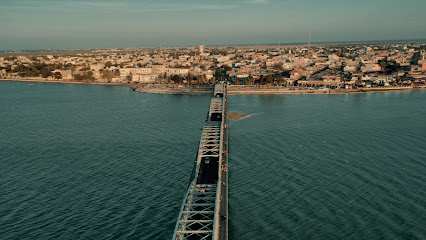
Stade Mawade Wade - Medina Courses
Explore the vibrant atmosphere at Stade Mawade Wade, Saint-Louis' premier sports complex, and immerse yourself in Senegal's thrilling horse racing culture.
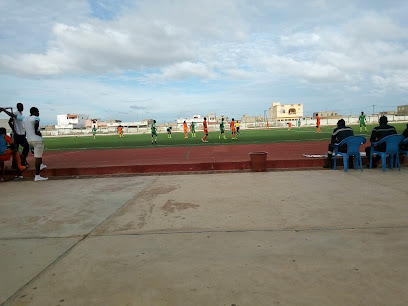
Patisserie Darou Salam
Experience the essence of Senegal through the delightful pastries and sweets at Patisserie Darou Salam in St. Louis.
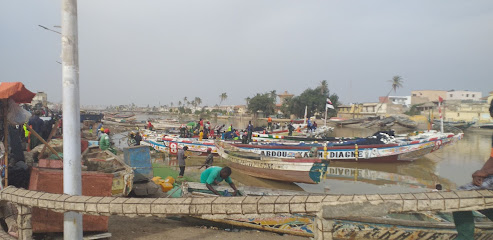
Auchan Saint-Louis
Explore Auchan Saint-Louis for a vibrant shopping experience, featuring local flavors and international products in the heart of Senegal.
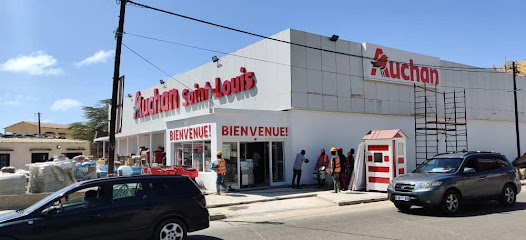
Tour of the egg
Discover the whimsical world of The Egg amusement park in St. Louis, a family-friendly destination filled with rides, games, and unforgettable experiences.
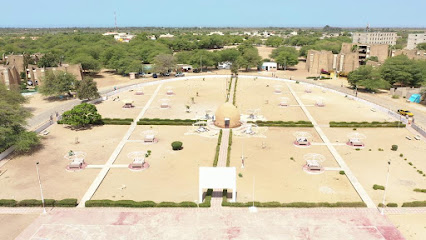
La Kora
Discover the flavors of Senegal at La Kora, a delightful restaurant in St. Louis offering an authentic taste of local cuisine in a warm atmosphere.
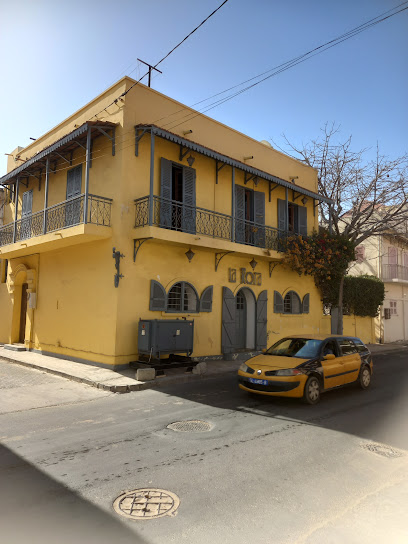
Hotel Mermoz
Experience the vibrant culture of St. Louis at Hotel Mermoz, your ideal retreat for comfort, cuisine, and local charm in Senegal.

Hotel Cap Saint Louis
Discover tranquility and adventure at Hotel Cap Saint Louis, a beautiful beachfront hotel in Saint Louis, Senegal, perfect for relaxation and exploration.

Musée de la Photographie de Saint-Louis
Explore the rich tapestry of photography at the Musée de la Photographie de Saint-Louis, where art, culture, and history converge in captivating exhibitions.
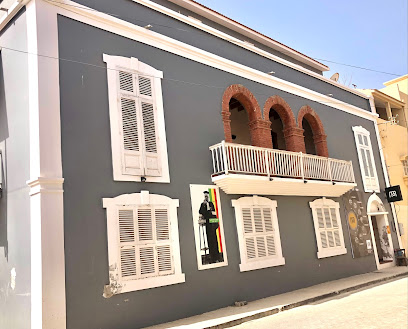
Hotel DIOR
Discover the elegance of Hotel DIOR in St. Louis, where modern comforts meet the charm of Senegal’s rich culture and history.
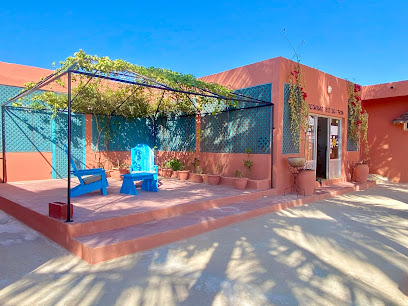
Maison d’Hôtel Sunu Keur
Discover the cultural heart of St. Louis at Maison d’Hôtel Sunu Keur, a charming hotel offering comfort and local charm by the scenic waterfront.

Parking Bayal
Explore Saint-Louis stress-free with convenient parking at Parking Bayal – your gateway to the city's rich culture and history.
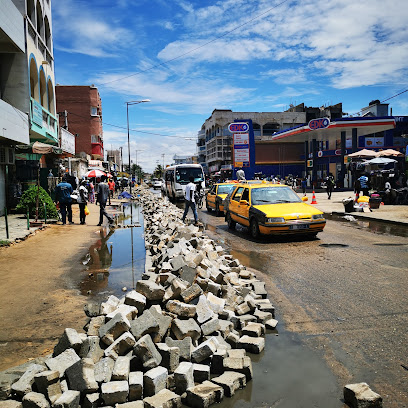
Gare Routière
Discover the flavors of St. Louis at Gare Routière, a culinary gem offering a fusion of local and international cuisine for an unforgettable dining experience.
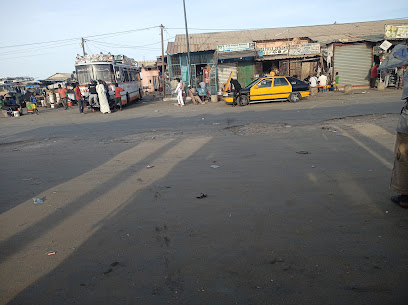
Ndar Ndar music & café
Experience the cultural heartbeat of St. Louis at Ndar Ndar Music & Café, where rich coffee meets vibrant live music in a welcoming atmosphere.
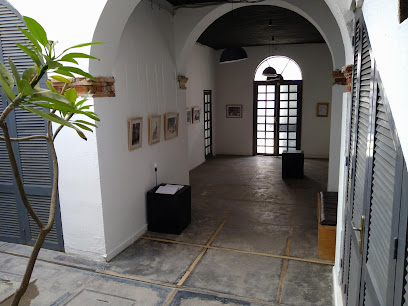
Le Château
Explore the rich cultural heritage of Saint-Louis at Le Château, a vibrant center for art, history, and community events in Senegal.
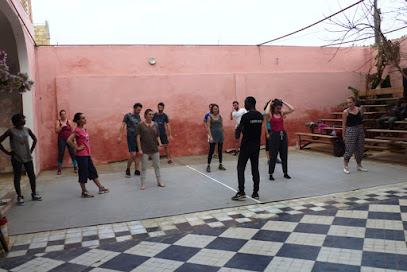
Unmissable attractions to see
African Renaissance Monument
Discover the African Renaissance Monument in Dakar, an iconic symbol of unity and progress, offering breathtaking views and rich cultural insights.
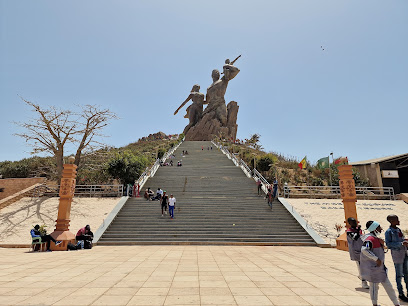
Bandia Reserve
Explore Bandia Reserve, a vibrant wildlife refuge in Senegal, where you can see diverse animals in their natural habitat amidst stunning landscapes.
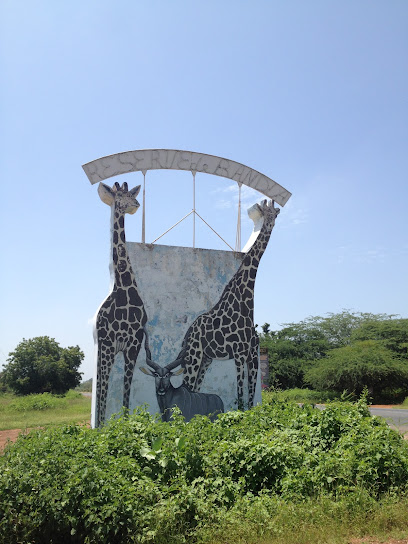
Plage BCEAO
Discover the beauty and vibrancy of Plage BCEAO, a must-visit public beach in Dakar, perfect for relaxation and local culinary delights.
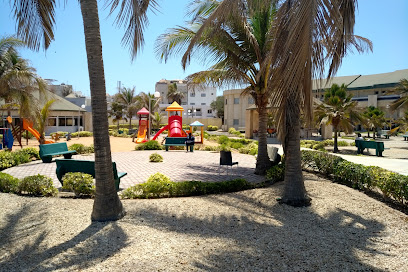
House of Slaves
Explore the House of Slaves in Gorée Island, a vital museum reflecting on the transatlantic slave trade and honoring its enduring legacy.
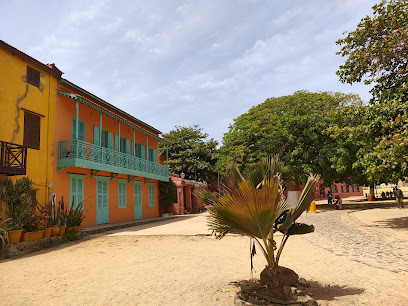
Magic Land
Experience the joy of Magic Land, a top-tier amusement park in Dakar with thrilling rides, funfair activities, and stunning coastal views.
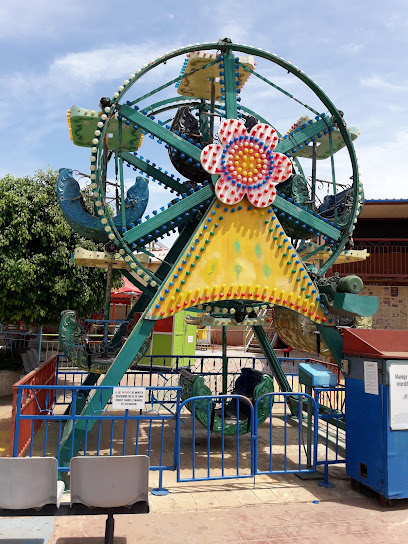
Faidherbe Bridge
Discover the historic Faidherbe Bridge in St. Louis, Senegal, a stunning connection between culture, history, and breathtaking views.
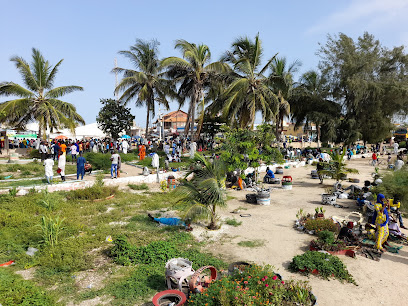
Cathedral of Our Lady of Victories
Discover the architectural beauty and spiritual serenity of the Cathedral of Our Lady of Victories in Dakar, a must-see cultural landmark.
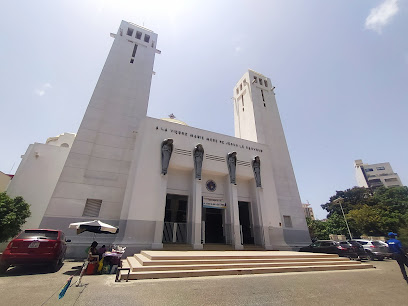
IFAN Historical Museum
Explore the IFAN Historical Museum in Dakar for an enriching journey through Senegal's cultural and historical treasures, showcasing art and artifacts from its diverse heritage.
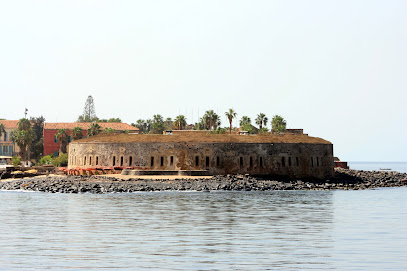
Tour of the egg
Discover the whimsical charm of the Tour of the Egg amusement park in St. Louis, where fun, thrill, and family-friendly attractions await.
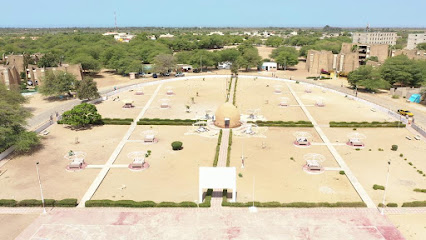
IFAN Museum of African Arts
Explore the IFAN Museum of African Arts in Dakar, where centuries of creativity and tradition converge in an inspiring showcase of African heritage.
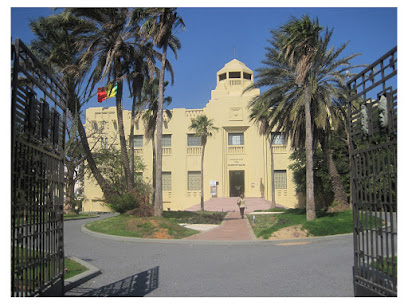
Djoudj National Bird Sanctuary
Explore Djoudj National Bird Sanctuary, a UNESCO World Heritage site in Senegal teeming with diverse birdlife and stunning landscapes, perfect for nature enthusiasts.
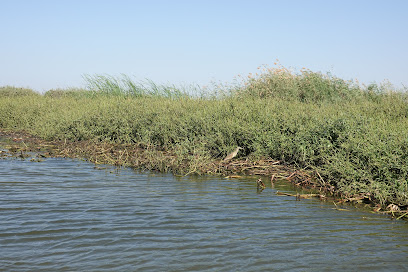
Musée de la Photographie de Saint-Louis
Explore the captivating world of photography at the Musée de la Photographie de Saint-Louis, where art and culture converge in a historic setting.
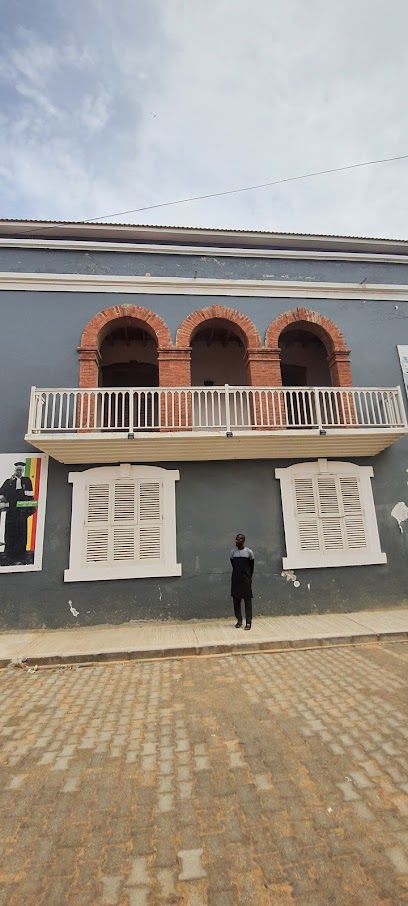
Saloum Delta National Park
Experience the breathtaking beauty and biodiversity of Saloum Delta National Park, a natural haven for adventurers and wildlife lovers in Senegal.
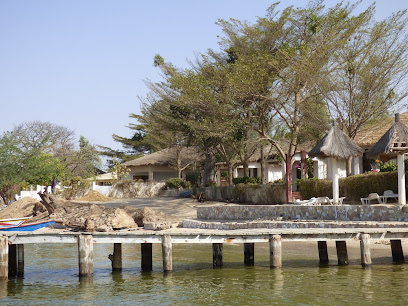
Désert de Lompoul
Experience the stunning beauty of Désert de Lompoul, a serene desert in Senegal known for its majestic dunes and cultural richness.
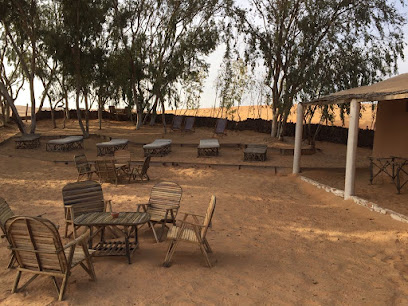
Banc d'Arguin National Park
Experience the breathtaking landscapes and rich biodiversity of Banc d'Arguin National Park, a UNESCO World Heritage site in Mauritania.
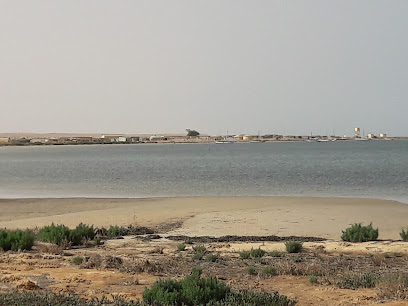
Essential places to dine
Patisserie Darou Salam
Experience the sweet taste of Senegal at Patisserie Darou Salam in St. Louis—where tradition meets indulgence in every delicious pastry.
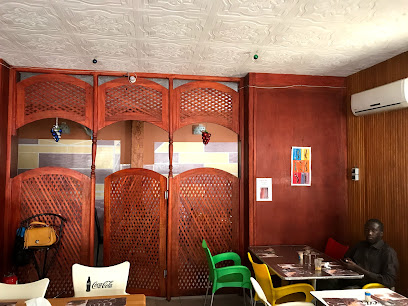
MOUQUETS Restaurant
Experience authentic Senegalese cuisine at MOUQUETS Restaurant in Saint-Louis—where every dish tells a story.
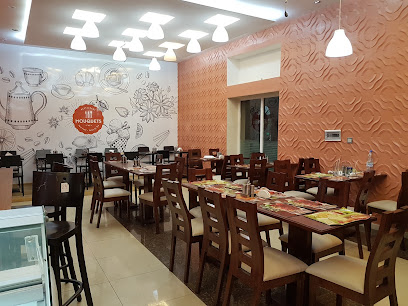
La Kora
Discover La Kora in St. Louis: where traditional Senegalese flavors meet modern culinary artistry for an unforgettable dining experience.
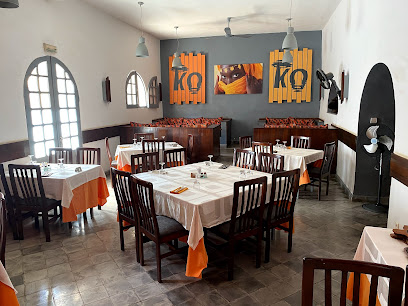
Keur Dada
Discover Keur Dada: A vibrant restaurant in St. Louis offering delicious cuisine and breathtaking waterfront views perfect for dining or events.
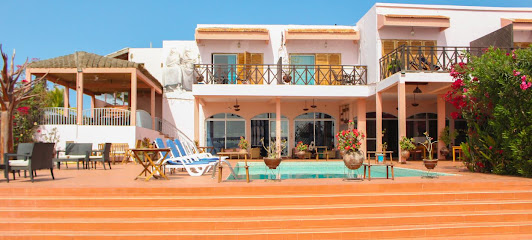
Nice Burger
Experience the best gourmet burgers at Nice Burger in St. Louis – where local flavors meet culinary creativity.
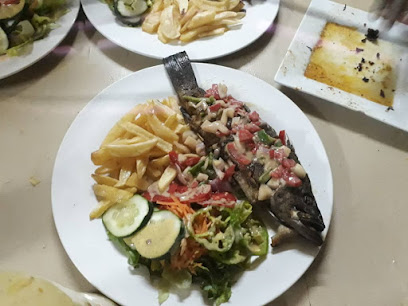
La Linguere
Experience authentic Senegalese cuisine at La Linguere - where delicious flavors meet warm hospitality in St. Louis.
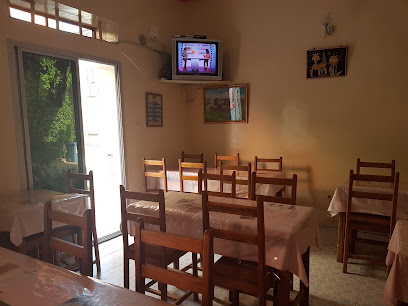
Restaurant Saharaoui
Experience authentic African cuisine at Restaurant Saharaoui in St. Louis – where every dish tells a story.
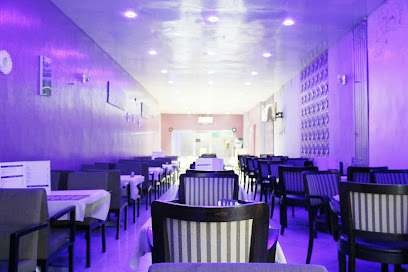
La crêpe Saint-Louisienne
Experience authentic French crêpes in St. Louis at La crêpe Saint-Louisienne—where flavor meets fun in every bite.
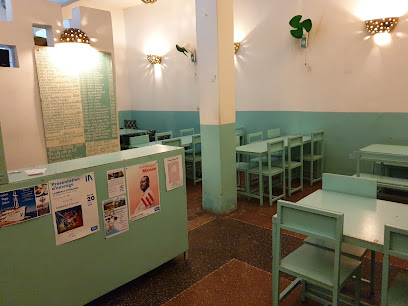
Chez Dasso
Experience authentic Senegalese cuisine at Chez Dasso in Saint-Louis – where every meal is a celebration of local flavors.
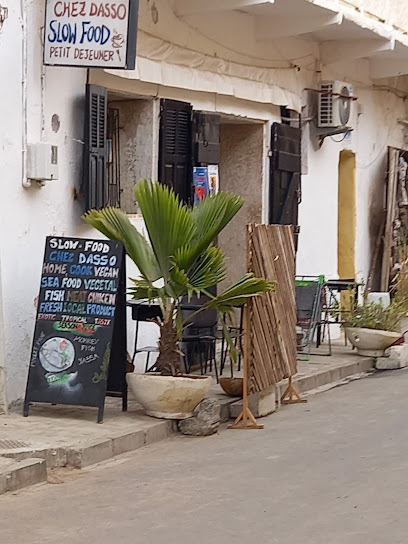
Taf-taf
Discover the authentic flavors of Senegal at Taf-taf in St. Louis – where every meal tells a story.
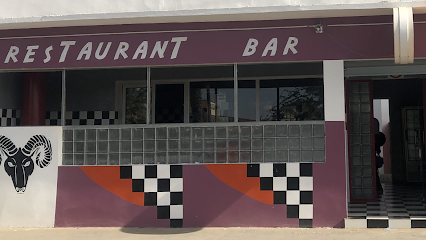
Sunset Grill Restaurant
Discover authentic Lebanese cuisine at Sunset Grill Restaurant in St. Louis - where every meal is a celebration of flavor and culture.
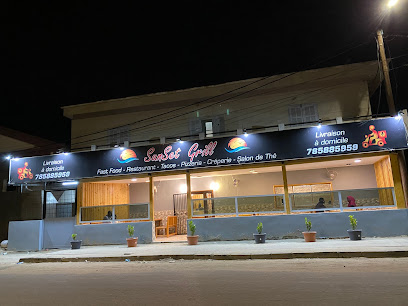
Restaurant Le SEDOR
Experience authentic local cuisine at Restaurant Le SEDOR in St. Louis – where every dish tells a story.
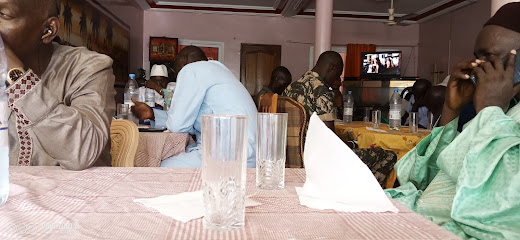
Dibiterie Chez mamadou
Discover authentic Senegalese cuisine at Dibiterie Chez Mamadou in St. Louis – where every dish is a celebration of flavor and culture.
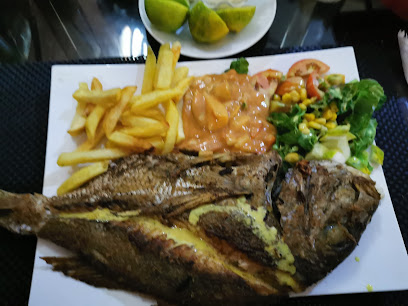
Restaurant La Galette
Discover the essence of Senegalese cuisine at Restaurant La Galette in St. Louis – where every meal tells a story.
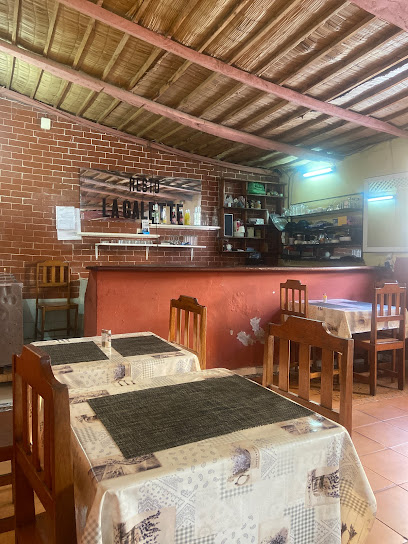
Darou Salam 2 restaurant/hébergement
Discover the essence of Senegal through authentic dishes at Darou Salam 2 in Saint-Louis - a culinary journey awaits!
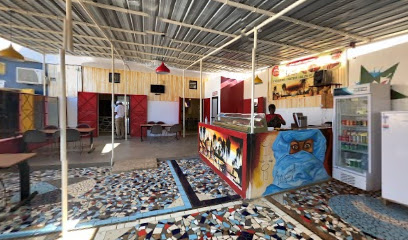
Markets, malls and hidden boutiques
Auchan Saint-Louis
Explore Auchan Saint-Louis, a vibrant supermarket near Notre Dame De Lourdes, offering a wide range of local and international products for every taste.
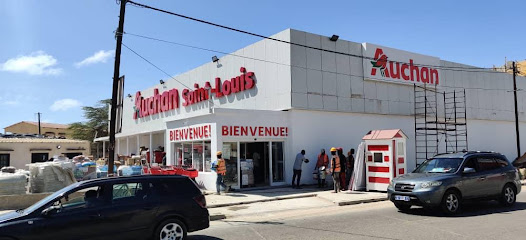
Marche sor
Explore Marche Sor in Saint-Louis, a bustling market filled with local flavors, vibrant crafts, and a glimpse into Senegalese culture.
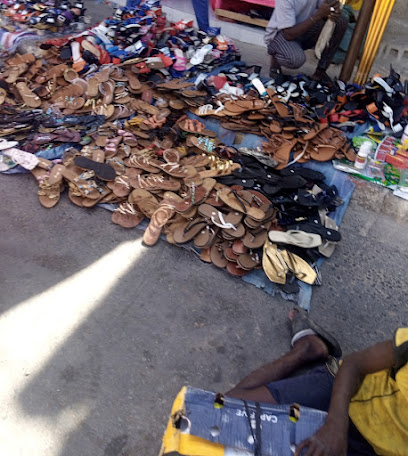
Boutique SAMSUNG électroménager
Explore the latest in home appliances at Boutique SAMSUNG électroménager, a tech haven in the vibrant city of St. Louis.
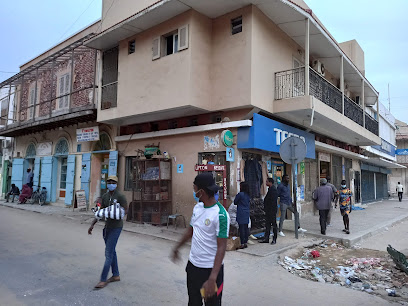
Saint Louis senegal
Discover the historical charm and vibrant culture of Saint Louis, Senegal, where colonial elegance meets lively local traditions.
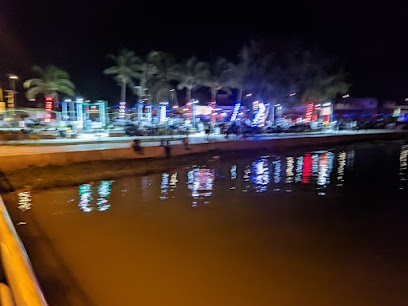
Africa Chips Sénégal
Discover unique Senegalese treasures at Africa Chips Sénégal, a charming consignment shop in St. Louis offering authentic local crafts and cultural experiences.

Complexe J'aime Maman:cosmétique Habillement H Et F Transfert D'argent
Discover the essence of local culture at Complexe J'aime Maman, a vibrant shopping mall in Saint-Louis offering unique fashion and cosmetic selections.
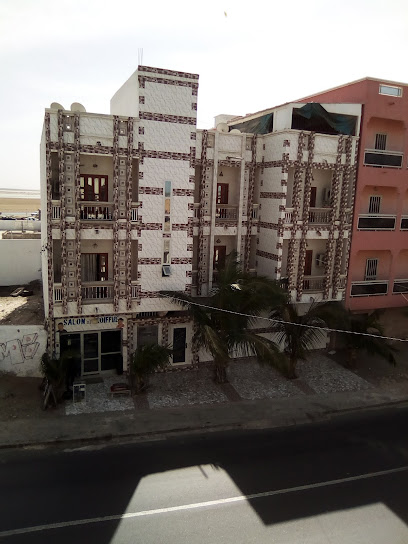
Saint-Louis Apple Store
Discover the latest Apple innovations at the Saint-Louis Apple Store, your hub for technology and community in St. Louis.

FADIA BOUTIQUE
Discover beauty and elegance at Fadia Boutique in Saint-Louis, where quality cosmetics meet exceptional service.
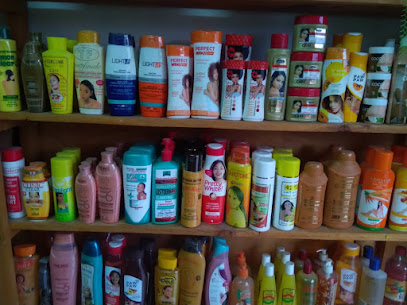
Galari de la jeunesse
Discover unique souvenirs and local crafts at Galari de la jeunesse, a charming gift shop in St. Louis, Senegal, capturing the essence of Senegalese culture.
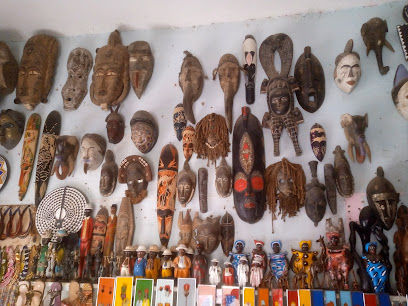
Racines d'Afrique
Experience the vibrant culture of Senegal through unique fashion accessories at Racines d'Afrique in St. Louis.

Nimzatt Galerie
Explore Nimzatt Galerie in St. Louis for a unique selection of Senegalese crafts, art, and souvenirs that capture the essence of local culture.
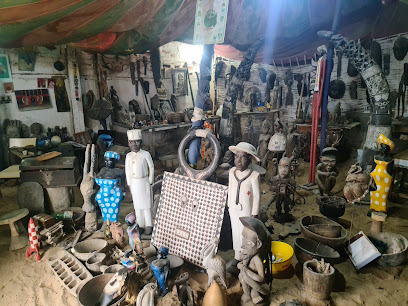
Porokhane Shop
Discover the essence of Senegalese fashion at Porokhane Shop in Saint-Louis, where local craftsmanship meets vibrant style.
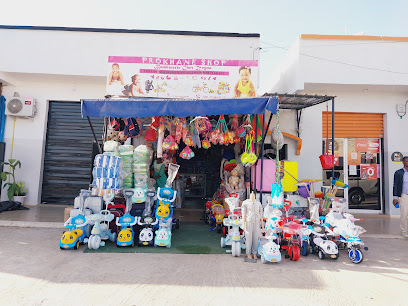
Faby shop
Explore Faby Shop in Saint-Louis for a unique selection of fashion accessories that reflect local culture and style, perfect for any occasion.
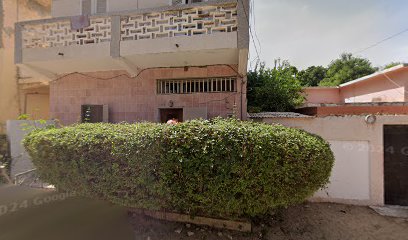
Alassan abdarahmaui ba
Discover unique Senegalese souvenirs at Alassan Abdarahmaui Ba, St. Louis' charming gift shop for local crafts and treasures.
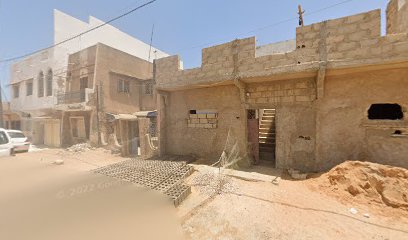
Boutique Daara
Explore Boutique Daara in Saint-Louis for a blend of traditional and modern Senegalese fashion, perfect for unique souvenirs and local artistry.

Essential bars & hidden hideouts
Hotel de la Residence
Discover a charming oasis in Saint-Louis at Hotel de la Residence, your gateway to local culture and comfort.

Auchan Saint-Louis
Discover the vibrant shopping experience at Auchan Saint-Louis, featuring local delicacies and international treats in the heart of Senegal.
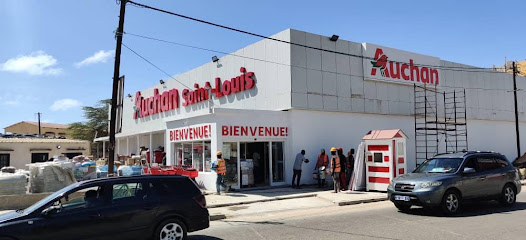
La Kora
Discover authentic Senegalese cuisine at La Kora in St. Louis, where every meal tells a story of flavor and tradition.
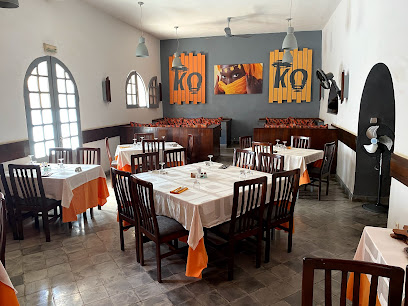
Restaurant Saharaoui
Experience the essence of Senegalese cuisine at Restaurant Saharaoui, a vibrant dining destination in St. Louis offering authentic African flavors.
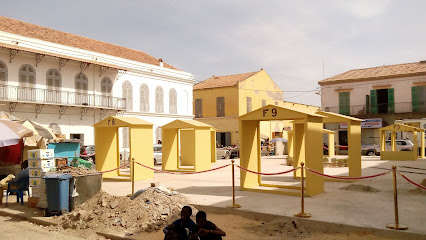
La crêpe Saint-Louisienne
Discover the best crêpes in St. Louis, Senegal, blending French deliciousness with local flair in a cozy and inviting atmosphere.
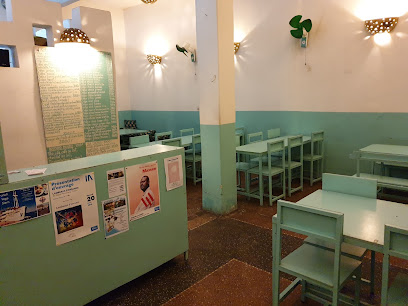
Chez Dasso
Experience authentic Senegalese cuisine at Chez Dasso in Saint-Louis – a culinary gem with vibrant flavors and inviting ambiance.
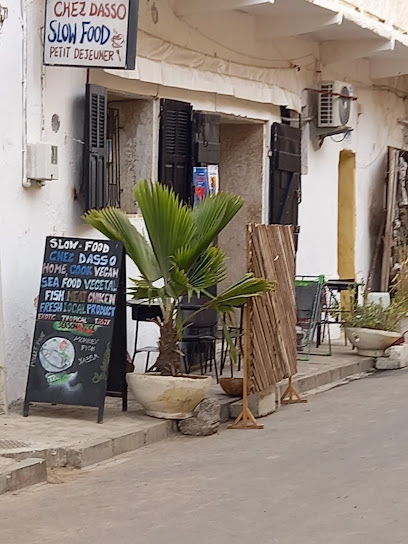
Taf-taf
Discover the vibrant flavors of Senegalese cuisine at Taf-taf in St. Louis, where every dish tells a story of culture and tradition.
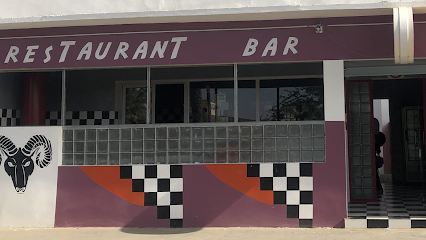
Hotel Mame Coumba Bang
Discover the charm and tranquility of Hotel Mame Coumba Bang, a perfect getaway on La Langue de Barbarie in Saint-Louis, Senegal.
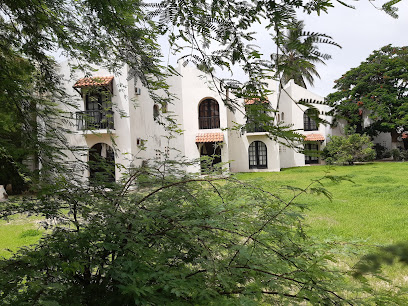
Farmers Coffee Shop Saint-Louis Sénégal
Discover the essence of Senegalese culture and flavors at Farmers Coffee Shop, a charming café in the heart of Saint-Louis.
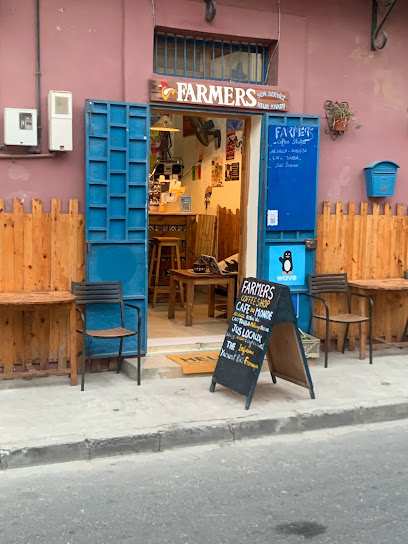
Coconut cafe
Discover the vibrant culinary scene at Coconut Cafe, a must-visit tapas bar in St. Louis offering delectable small plates and a lively atmosphere.
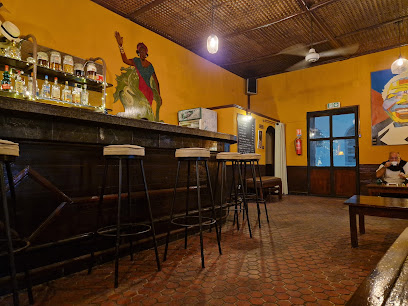
Iguane Cafe
Discover the lively Iguane Cafe in St. Louis, a salsa bar where art meets rhythm, perfect for experiencing local nightlife and vibrant culture.
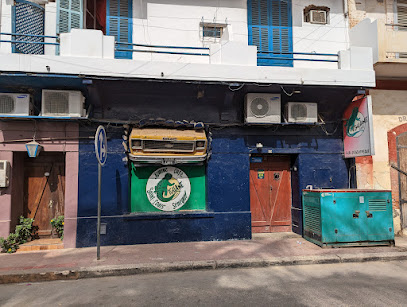
NPA lounge bar night club
Discover the vibrant nightlife of St. Louis at NPA Lounge Bar, where cocktails, music, and dancing create unforgettable moments.
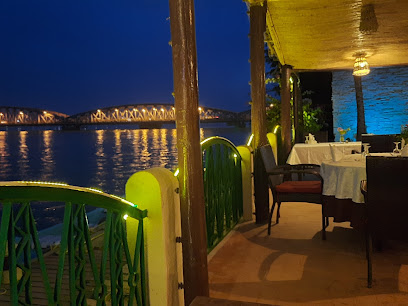
Bar Vip Mix Club
Experience the vibrant nightlife of Saint-Louis at Bar Vip Mix Club, where live music and local culture come alive in a lively atmosphere.
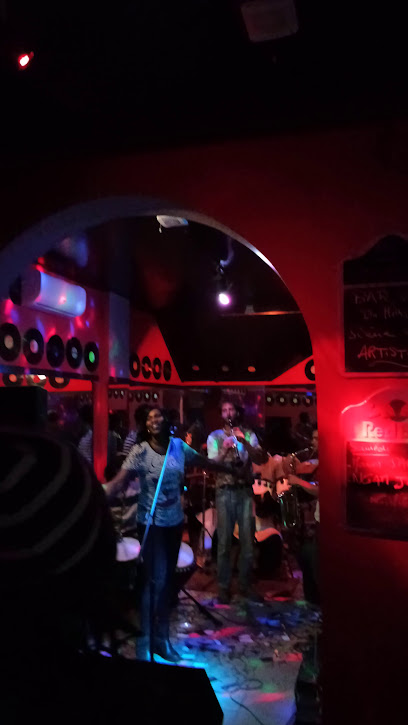
Ndoumbélane
Discover the vibrant atmosphere of Ndoumbélane, a lively bar and restaurant in St Louis offering local flavors and a taste of Senegalese nightlife.
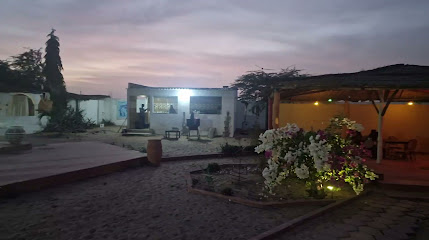
Nulle Part Ailleurs (NPA)
Experience the vibrant nightlife of St. Louis at Nulle Part Ailleurs, a premier night club where music, dancing, and fun come together for an unforgettable night.

Travel experiences inspired by this city
Explore more travel diariesLocal Phrases
-
- HelloSalaam aleekum
[sah-lahm ah-lee-koom] - GoodbyeBa bëg na
[bah behg nah] - YesWaaw
[wah-ow] - NoDéedéet
[day-dayt] - Please/You're welcomeNopp
[nawp] - Thank youJërëjëf
[je-reh-jef] - Excuse me/SorrySaanu borom
[sah-noo boh-rom] - How are you?Nopp laa ngi fii?
[nawp lah nghee fee] - Fine. And you?Jamm. Nopp yàlla?
[jahm. nawp yah-lah] - Do you speak English?Amul Angalee?
[ah-mool ahn-gah-lee] - I don't understandDéedéet
[day-dayt]
- HelloSalaam aleekum
-
- I'd like to see the menu, pleaseNopp laa bëgg jëfandikuka, dafa
[nawp lah behg jeh-fahn-dee-koo-kah, dah-fah] - I don't eat meatMàggal laa xar mi
[mahg-gahl lah char mee] - Cheers!Bësse
[beh-say] - I would like to pay, pleaseNopp laa def ay jàppale, dafa
[nawp lah dehf eye jah-pahl, dah-fah]
- I'd like to see the menu, pleaseNopp laa bëgg jëfandikuka, dafa
-
- Help!Nopp!
[nawp!] - Go away!Dëggal!
[dayg-gahl!] - Call the Police!Dafa nopp polic
[dah-fah nawp poh-lees] - Call a doctor!Dafa nopp gëstoo
[dah-fah nawp gehs-toh] - I'm lostNopp laa fët
[nawp lah fet] - I'm illNopp laa tontu
[nawp lah tohn-too]
- Help!Nopp!
-
- I'd like to buy...Nopp laa xar...
[nawp lah char...] - I'm just lookingDanga jàppale
[dahn-gah jah-pahl] - How much is it?Xewna
[kheh-nah] - That's too expensiveDafa xewla
[dah-fah kheh-lah] - Can you lower the price?Dafa xewlul wone?
[dah-fah kheh-lool woh-neh]
- I'd like to buy...Nopp laa xar...
-
- What time is it?Nopp laa yoon
[nawp lah yohn] - It's one o'clockNopp laa wàccu ndam
[nawp lah wah-choo ndahm] - Half past (10)Ñaari (10)
[nyah-ree (10)] - MorningFajr
[fah-jer] - AfternoonTànk
[tah-nk] - EveningGor
[gohr] - YesterdayNatt
[naht] - TodayNopp
[nawp] - TomorrowFàtt
[faht] - 1Bëgg
[behg] - 2Jëf
[jehf] - 3Ndey
[nday] - 4Nerte
[nair-teh] - 5Juroom
[joo-room] - 6Jëkkër
[jehk-ker] - 7Njëbët
[njeh-bet] - 8Ñett
[nyet] - 9Sont
[sohnt] - 10Fukk
[fook]
- What time is it?Nopp laa yoon
-
- Where's a/the...?Ñu...
[nyoo...] - What's the address?Ñu ko def?
[nyoo koh dehf?] - Can you show me (on the map)?Dafa koy laa jëmm ci palanteer?
[dah-fah koy lah jehm cee pah-lahn-tehr?] - When's the next (bus)?Ñaari ñakk ba teey?
[nyah-ree nyahk bah tey?] - A ticket (to ....)Billet (ci ...)
[bee-yet (chee ...)]
- Where's a/the...?Ñu...
History of Saint-Louis
-
Saint-Louis, founded in 1659 by French traders, is one of the oldest colonial cities on the western coast of Africa. Initially named after King Louis XIV of France, it quickly became a significant trading post due to its strategic location on the Senegal River.
-
During the 18th and 19th centuries, Saint-Louis became an important center for the transatlantic slave trade. The city was a major hub where enslaved Africans were held before being shipped to the Americas. This period also saw the construction of many of the city's colonial buildings, which still stand today.
-
In the 19th century, Saint-Louis grew economically through the trade of gum arabic, ivory, and gold. It became a melting pot of cultures, attracting traders from France, Portugal, and other European nations, as well as from various African ethnic groups. This diversity enriched the city's cultural and architectural heritage.
-
From 1895 to 1902, Saint-Louis served as the capital of French West Africa. The city was the administrative center for French colonial rule in the region, and many colonial buildings, including the Governor's Palace and administrative offices, were established during this period.
-
Following the relocation of the capital to Dakar in 1902, Saint-Louis experienced a decline in its political and economic significance. However, it remained an important cultural and educational center. Senegal gained independence from France in 1960, and Saint-Louis continued to play a key role in the nation's cultural identity.
-
In 2000, the historic island of Saint-Louis was designated a UNESCO World Heritage Site in recognition of its well-preserved colonial architecture and its historical significance. This designation has helped to preserve the city's unique heritage and attract tourists from around the world.
-
Saint-Louis is renowned for its vibrant cultural scene, including the annual Saint-Louis Jazz Festival, which attracts international musicians and fans. The city's rich traditions, including music, dance, and culinary arts, reflect its diverse cultural influences and historical legacy.
-
Today, Saint-Louis is a dynamic city that balances its rich historical heritage with modern development. The city's blend of old and new, along with its scenic riverfront and lively markets, continues to captivate visitors and locals alike.
Saint-Louis Essentials
-
Saint-Louis is located on the northwest coast of Senegal, about 320 kilometers north of Dakar. The nearest international airport is Blaise Diagne International Airport (DSS) near Dakar. From Dakar, you can travel to Saint-Louis by road. Buses and minibuses (known as 'Ndiaga Ndiaye') operate frequently between Dakar and Saint-Louis, and the journey typically takes about 4 to 5 hours. Alternatively, hiring a private car or taking a taxi are also viable options.
-
Saint-Louis is relatively small, and many of its attractions are within walking distance. For longer distances, local taxis and horse-drawn carriages called 'caleches' are readily available and provide a unique way to explore the city. Public buses and minibuses operate within the town and connect to nearby areas. Renting a bicycle is another popular way to get around, especially for exploring the island and the Langue de Barbarie.
-
The official currency in Senegal is the West African CFA franc (XOF). Credit cards are accepted in some hotels, restaurants, and shops, but it is advisable to carry cash, especially in smaller establishments and markets. ATMs are available in Saint-Louis, but it is wise to withdraw sufficient cash before traveling to ensure you have enough funds for your trip.
-
Saint-Louis is generally a safe destination for tourists, but it is advisable to take standard precautions. Avoid walking alone at night in unfamiliar areas and keep an eye on your belongings in crowded places. While Saint-Louis does not have specific high-crime areas targeting tourists, it is always best to stay vigilant and aware of your surroundings.
-
In case of emergency, dial 17 for police assistance or 18 for the fire department. The local hospital in Saint-Louis can provide medical assistance, and there are several pharmacies in the city where you can purchase over-the-counter medications. It is recommended to have travel insurance that covers medical emergencies.
-
Fashion: Do dress modestly, especially when visiting religious sites. Avoid wearing revealing clothing. Religion: Do respect local customs and traditions, and be sensitive to the predominately Muslim culture. Public Transport: Do be respectful and give up your seat to elderly passengers. Don't eat or drink on public transport. Greetings: Do greet people with a handshake. A slight bow of the head is also a sign of respect. Eating & Drinking: Do try local delicacies and accept food offerings graciously. Don’t refuse hospitality, as it is considered impolite.
-
To experience Saint-Louis like a local, visit the local markets, such as the Marché Sor, where you can buy fresh produce and traditional Senegalese goods. Engage with locals, as they are often friendly and willing to share stories about the city's history and culture. Don’t miss the vibrant music scene, especially during the Saint-Louis Jazz Festival, which attracts musicians from around the world. For a unique experience, take a boat tour along the Senegal River or explore the Djoudj National Bird Sanctuary, a UNESCO World Heritage site.
Trending Landmark in Saint-Louis
Nearby Cities to Saint-Louis
-
Things To Do in Thiès
-
Things To Do in Dakar
-
Things To Do in Mbour
-
Things To Do in Kaolack
-
Things To Do in Nouakchott
-
Things To Do in Bakau
-
Things To Do in Banjul
-
Things To Do in Serekunda
-
Things To Do in Serrekunda
-
Things To Do in Farafenni
-
Things To Do in Lamin
-
Things To Do in Soma
-
Things To Do in Brikama
-
Things To Do in Gunjur
-
Things To Do in Janjanbureh
















